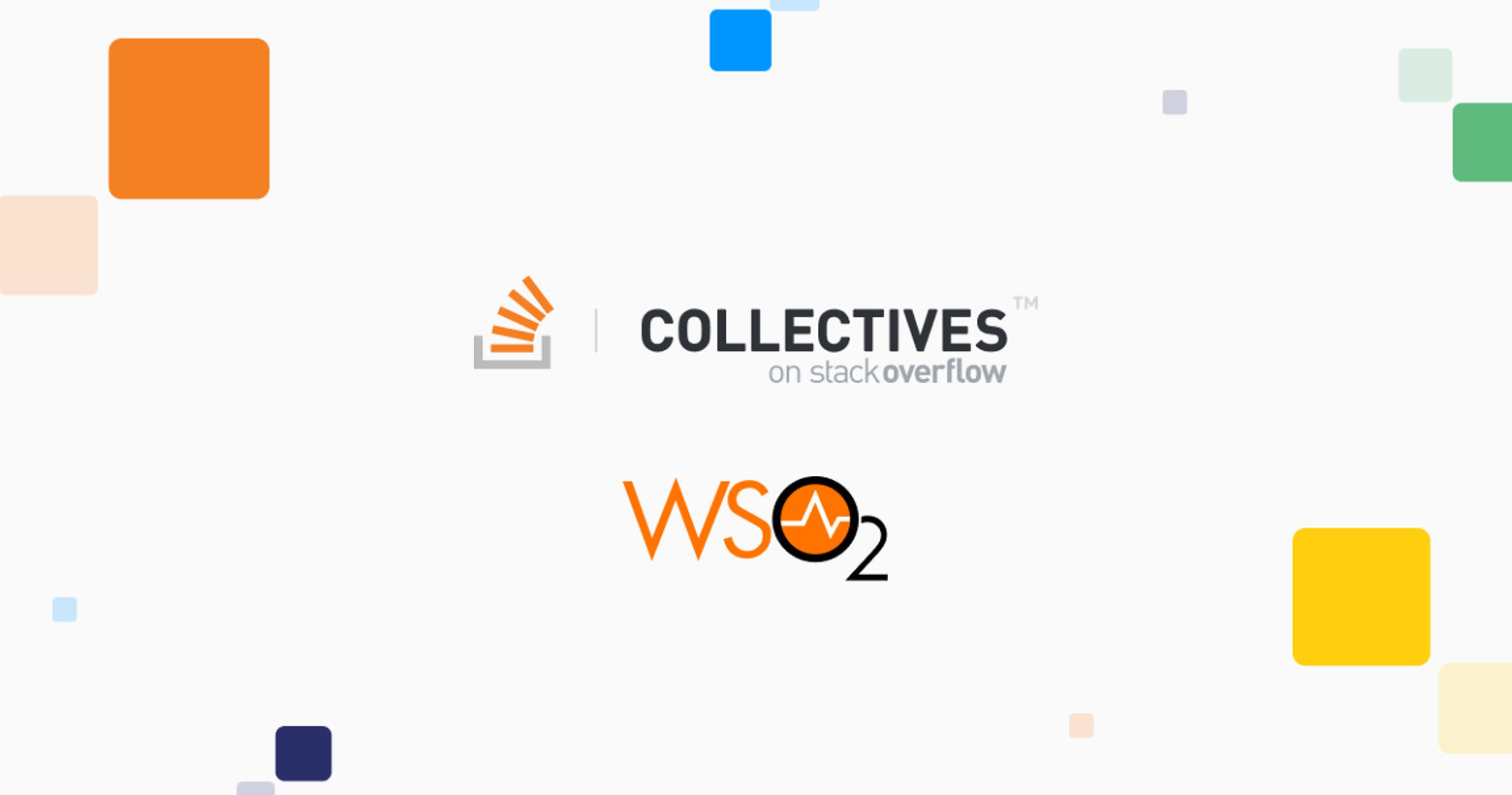From inception, WSO2 had a firm belief in the power of open-source software. Its co-founders were early members of the Apache foundation, and their vision for WSO2 always incorporated the innovation and commitment of a global developer community. Over a decade ago, WSO2 helped to popularize the use of open source in the enterprise and proved that software created by a public community could also be used to create tremendous business value.
Given this history, it’s only natural that WSO2 is joining Collectives™ on Stack Overflow. Collectives are subcommunities on Stack Overflow focused on a specific platform or ecosystem and defined by tags associated with an organization’s technologies. You will find answers from subject matter experts, relevant resources and information (including questions, recommended answers, technical articles, and bulletins), and a leaderboard to see where you rank based on your contributions.
Any user with a Stack Overflow account can join the WSO2 Collective. It brings together experts from within its organization and the Stack Overflow community to share knowledge and collaborate on topics like ‘wso2’, ‘wso2-identity-server’, ‘wso2-api-manager’, and ‘ballerina’. Top contributors can be selected by WSO2 as Recognized Members, users recognized by the company for their contributions and trusted to help nurture the Collective by responding to questions, collaborating on articles, and recommending answers.
“The developer community has long been the focus of WSO2. The products and projects we’ve built over the years all had the same goal: to enable development efforts across many industries,” said AJ Danelz, Head of Developer Relations at WSO2. “Collectives supports our goal of fostering a healthy community through open collaboration and feedback to help each developer—as well as our teams—continue to improve.”
The information and resources developers need to build with WSO2 technologies have historically existed across numerous forums, help centers, and other avenues. “Centralizing our communities' communication is important,” said Danelz. “We want to meet developers where they are instead of making them come to us. Collectives on Stack Overflow gives us the tools necessary to foster a community without demanding anything in return.”
Going forward, the WSO2 Collective will serve as a dedicated, centralized space to collaborate on the organization’s technologies. “We want to ensure our users can find the help they need, and that will inform others. We intend to focus our public interaction around Stack Overflow questions and plan to leverage the visibility our Collective provides to grow and recognize community members who are contributing.”
WSO2 also looks forward to using its Collective as a space to discuss Ballerina. “Ballerina is a new language built for the modern cloud-native application. The team made the programming language 100% open-source with all parts of the project developed openly at https://github.com/ballerina-platform.” says Danelz. “Ballerina is the only modern cloud-native programming language that provides features for easily using, combining, and creating network services for the cloud.”
Digital transformation remains a focus for businesses worldwide, and developers are building and innovating with WSO2’s API-first software to meet the demand. “Across WSO2 products, we execute more than 18 trillion transactions, expose more than 200,000 APIs, and manage over 1 billion identities every year. Developers are behind every one of those stats,” says Danelz. “We will continue to foster our relationship with the community by improving the tools and resources they need. By enabling community, the community can enable itself. Stack Overflow is where developers go to learn and grow, and we look forward to further empowering users through our Collective.”
